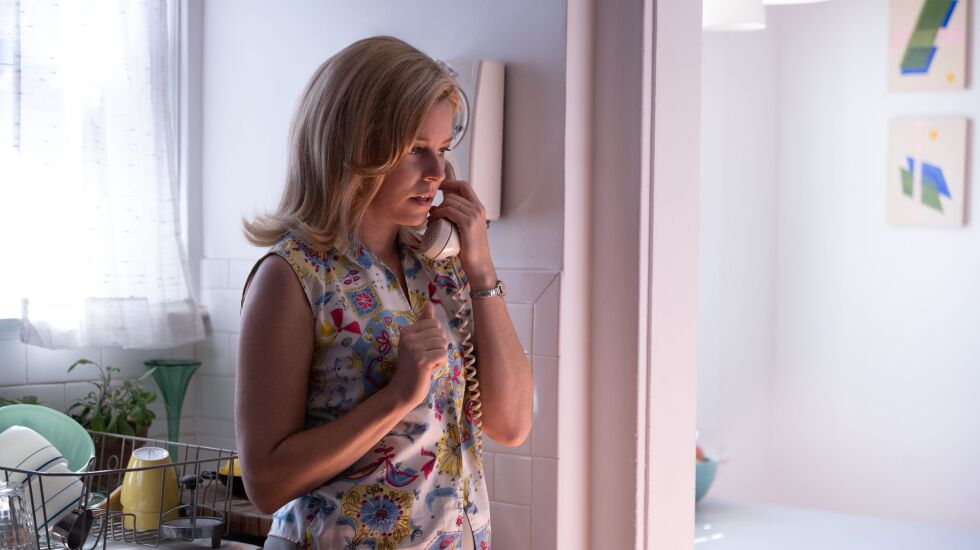
In the beautifully filmed, single-shot opening to the period-piece drama “Call Jane,” we follow Elizabeth Banks’ elegantly attired Joy in a “Mad Men” type setting as she makes her way through the lobby of a downtown Chicago hotel where her lawyer husband’s firm is hosting a shindig, with Joy eventually emerging through the revolving doors and witnessing the jarring site of nightstick-brandishing policemen in their powder-blue helmets lined up as protesters chant, “The whole world is watching, the whole world is watching, the whole world is watching!”
Welcome to 1968, Joy. Your whole world is about to change as well.
Earlier this year, we had the invaluable and timely HBO documentary “The Janes,” which told the story of the heroic women in the Chicago area who formed an underground network to facilitate safe albeit illegal abortion for thousands of individuals in the late 1960s and early 1970s. Now comes “Call Jane,” a fictionalized feature film from Phyllis Nagy (the Oscar-nominated scribe of 2015’s “Carol”), which tells that story primarily through the experiences of Banks’ suburban Chicago housewife, whose very purpose is turned upside down after she is faced with a life-threatening pregnancy.
When Joy is denied a special-exception abortion by a callous all-male hospital board, she calls “Jane,” i.e., a hotline for women who want an abortion, and is transported to a secret location, where she pays $600 cash to a callous and rather creepy young male doctor (Cory Michael Smith), who might not even be a licensed doctor but performs the procedure.
As soon as Joy takes a few hours to recover, she’ll be on her way; that’s her plan. But she finds herself drawn in by Jane founder Virginia (the great Sigourney Weaver) and by the stories of so many women who desperately need help and have no legal recourse. In rapid fashion, Joy joins the group and eventually even learns how to perform the procedure, even as she tries to maintain the role of the happy housewife to her attorney husband Will (Chris Messina) and her teenage daughter (Grace Edwards).
“Call Jane” touches on a number of social and political issues — even in the ranks of the liberal Jane group, patients with the means to pay for abortions are given priority over those that can’t — while occasionally dropping in some heavy-handed touches, e.g., Kate Mara’s widow Lana, who is Joy’s best friend, reads “Diary of a Mad Housewife,” pops pills like candy and says of course she voted for Nixon. (It’s as if the screenplay is trying to jam in a myriad of late 1960s commentaries into one relatively minor character.)
More often than not, however, “Call Jane” delivers depth and nuance to the story. The actions of Will, Charlotte and even an undercover Chicago Police Department detective when they individually discover Joy’s activism are surprising and, in some instances, deeply moving. We’ve known for a long time Elizabeth Banks is equally deft at handling comedy and drama, and in one of the most serious and important roles of her career, Banks comes through in powerfully effective fashion. “Call Jane” is a drama that carries the ring of historical truth.







